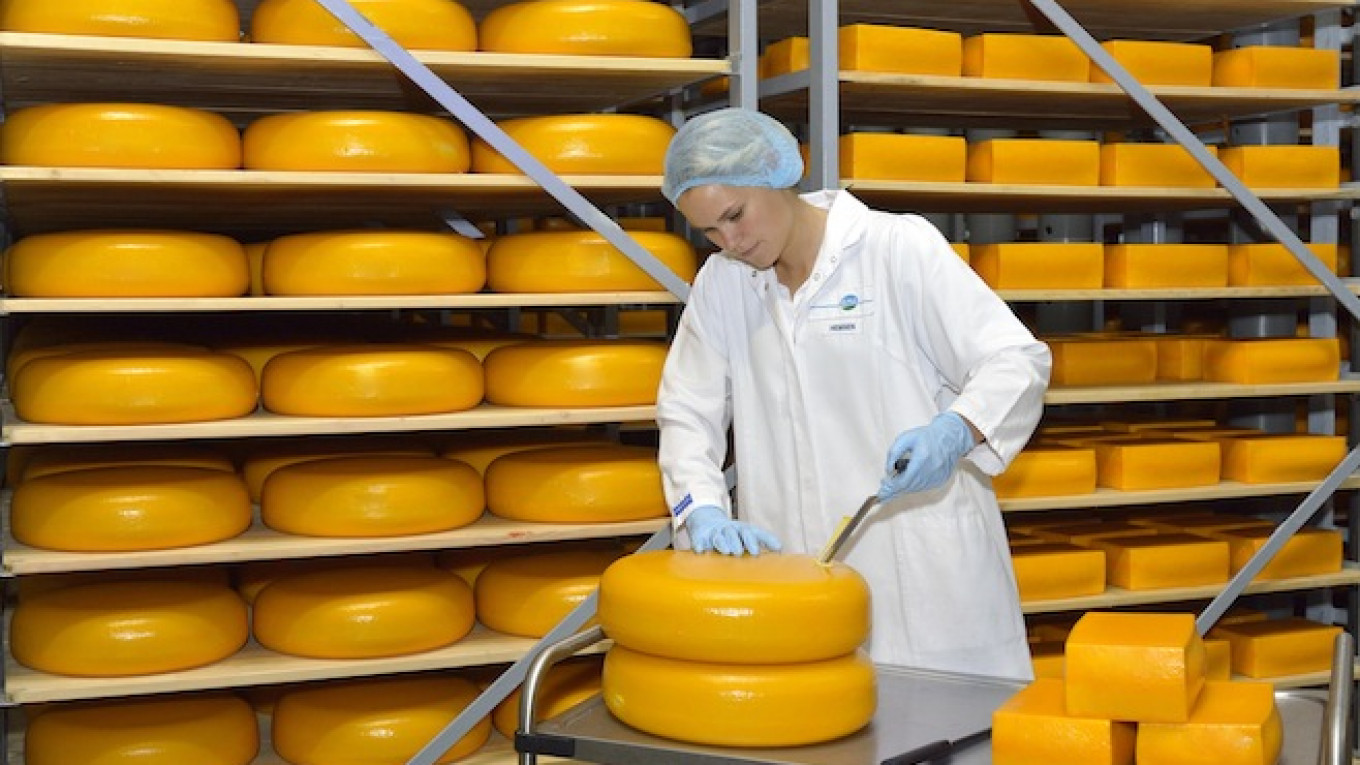An Extensive Look at Cheese Production: Components, Methods, and the Future of Craftsmen Cheeses
The complex process of cheese manufacturing is an interesting merging of art and scientific research, where premium milk, rennet, and specific microbial societies function as foundational aspects. Conventional strategies, such as salting and aging, are matched by contemporary innovations that react to evolving customer choices. As the sector progressively focuses on sustainability and transparency, the future of artisan cheeses assures to reflect both heritage and development. Comprehending the nuances of these methods elevates compelling inquiries regarding the instructions of cheese manufacturing and its effects for high quality and credibility. What exists ahead in this progressing landscape?
Key Components in Cheese Manufacturing
A selection of vital active ingredients play a pivotal role in cheese production, each contributing to the last item's taste, appearance, and character. The primary component in cheese is milk, which can originate from numerous resources, including cows, goats, and sheep - cheese factory melbourne. The sort of milk utilized considerably influences celebrity's taste and uniformity; for circumstances, cow's milk typically generates creamier cheeses, while goat's milk often generates appetizing selections
Another crucial ingredient is rennet, an enzyme made use of to curdle the milk, dividing it into curds and whey. The source of rennet can be animal, veggie, or microbial, each presenting distinctive attributes to the cheese.
Salt not only enhances the flavor but also functions as a preservative, hindering the development of unfavorable bacteria. In addition, various flavoring agents, such as herbs, seasonings, or even smoked timber, can be contributed to produce one-of-a-kind artisanal cheeses. With each other, these ingredients create the structure of cheese production, establishing the stage for varied and rich cheese selections.
Standard Cheese-Making Techniques
Making use of conventional cheese-making strategies, artisans around the globe protect time-honored approaches that have been given with generations. These techniques typically emphasize using premium, locally sourced milk, which is main to the unique tastes and structures of artisanal cheeses. The procedure normally begins with the mindful home heating of milk, followed by the enhancement of cultures and rennet to promote coagulation.
When the curds create, they are reduced, permitting whey to drain pipes, a crucial step that influences moisture content and texture. Salting is a vital element of this process, improving flavor while likewise acting as a preservative.
Aging, or affinage, is one more important component, during which cheeses develop their particular aromas and preferences. Artisans may use details maturing settings, making use of humidity and temperature level controls to refine celebrity's profile. The commitment to these standard techniques not just supports local economies however likewise adds to the abundant diversity of cheese varieties located around the world, commemorating cultural heritage and artisanal craftsmanship.
Modern Innovations in Cheese Production
Exactly how have technical developments transformed cheese production in current years? The assimilation of modern-day technology has changed both the effectiveness and top quality of cheese production.
Furthermore, advancements in microbiology have enabled cheesemakers to choose details bacterial cultures and enzymes, enhancing taste profiles and boosting service life. Making use of sensing unit innovation for monitoring fermentation conditions has actually additionally become common, permitting real-time changes to maintain ideal atmospheres for cheese aging.

These developments not only enhance the quality and sustainability of cheese production however additionally equip artisan producers to maintain conventional tastes while welcoming modern-day efficiency. As innovation remains to progress, the future of cheese manufacturing looks appealing, mixing practice with technology.
The Duty of Terroir in Cheese
In the realm of cheese production, terroir plays a pivotal duty in defining the unique features of numerous cheeses. Terroir, a French term typically related to white wine, incorporates the ecological factors that influence farming products, including dirt composition, environment, and Continue local plants and animals. In cheese-making, the distinct characteristics of the area where the milk is sourced can convey particular tastes and textures to the final product.
For instance, the grazing problems of milk pets substantially influence the milk's structure, affected by the types of yards and natural herbs available in a specific place. This varies not only in between countries yet additionally between regions within the exact same country. Additionally, the microbial communities present in the setting add to the fermentation procedures, resulting in varied profiles in flavor and scent.
Cheeses such as Roquefort, Parmigiano-Reggiano, and Cheddar exhibit just how terroir can form their identifications, making them distinctive and typically secured by geographical indicators. As manufacturers significantly acknowledge the value of terroir, there is a growing emphasis on sourcing regional components and maintaining conventional techniques, making certain that each cheese really shows its origin.

Future Trends in Craftsmen Cheeses
A remarkable shift is occurring in the craftsmen cheese sector, driven by advancing customer preferences and technological improvements. Progressively, consumers are inclining one-of-a-kind, top notch products that stress both sustainability and regional sourcing - cheese shop melbourne. This pattern is triggering artisan cheesemakers to innovate, concentrating on small-batch production and the use of typical methods while incorporating contemporary innovation to improve quality and safety and security
In addition, there is a growing passion in plant-based and alternative milk items, pressing typical cheesemakers to explore new methods, such as cashew or almond-based cheeses. This change not only satisfies dietary limitations but also straightens with ecological issues pertaining to pet agriculture.
Additionally, openness in sourcing and production processes is coming to be paramount. Consumers are a lot more enlightened and need traceability, prompting producers to embrace more clear labeling practices and participate in storytelling that highlights their approaches and worths.
Final Thought
In verdict, the intricate process of cheese production melds standard strategies with modern technologies, leading to a varied selection of flavors and textures. The emphasis on high-quality Full Article ingredients and the impact of terroir underscore the creativity associated with cheese production. As the market evolves, a focus on sustainability and openness will likely shape the future of artisan cheeses, satisfying a progressively critical consumer base that values authenticity and workmanship in milk items.